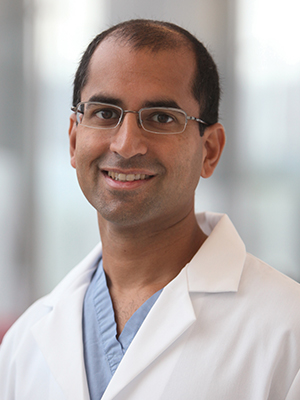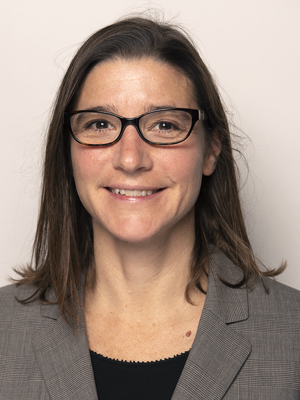Top News in Coronary Artery Disease: 2018
ORBITA subanalyses, CULPRIT-SHOCK, and newest-generation stents made the list of the most interesting news in the field of coronary artery disease.
The CAD field saw several headlines featuring stable disease and ACS in 2018 that led experts to reexamine their everyday practice.
According to Ajay Kirtane, MD (NewYork-Presbyterian/Columbia University Irving Medical Center, New York, NY), 2018 was the year of “a thoughtful approach to PCI.” Building off of the ORBITA hubbub of 2017, coronary interventionalists have taken a step back to ensure that they are treating the correct patients.

“Not everybody needs [PCI],” Kirtane said. “We should target it to the right patients. When we do it, we shouldn't just put stents in without actually imaging the vessel and imaging afterwards to make sure that we've done a good job and the job that the patient came there for. And then in terms of the duration of dual antiplatelet therapy, [it’s] the same thing: where we know that continuance is associated with lower ischemic events, but if we're thoughtful in our approach and can potentially tailor the continuance of dual antiplatelet therapy to the patients at lowest bleeding risk, that might be the best way to maximize benefits. And yet if we stop in patients that are at high bleeding risk (if the studies bear that out), then once again we would have to think and it wouldn't be ‘one size fits all,’ it would actually be tailored to the patient.”
Kirtane specifically pointed to two small studies out of Imperial College London, in England, that help whittle down the best candidates for PCI using physiology measures. The first, published in the Journal of the American College of Cardiology in August, showed large gains in symptoms and exercise tolerance among 21 ORBITA patients with stable CAD and single-vessel coronary stenosis after catheterization. The second, presented at EuroPCR and simultaneously published in Circulation, demonstrated that values for fractional flow reserve and instantaneous wave-free ratio are aligned with improvements on stress echocardiography in patients who would have been eligible for the ORBITA trial.
Yes, PCI does work to relieve the physiologic obstruction to stenosis, and we as doctors have to just be better clinicians in determining [for] which patients that problem is causing the symptomatic limitations that they have. Ajay Kirtane
These studies show “that, yes, PCI does work to relieve the physiologic obstruction to stenosis, and we as doctors have to just be better clinicians in determining [for] which patients that problem is causing the symptomatic limitations that they have,” he said. “In some respects, I view it as a reaffirmation of thoughtful PCI and thoughtful clinical judgement. It's not that it doesn't work—it does work, but we just have to figure out who the best patients are in whom to have it work. That's what many people have felt after the initial trial results came out, but these two analyses from the same group, to their credit, really show that in a prospective way.”
Key Trials in 2018
J. Dawn Abbott, MD (Brown University, Providence, RI), pointed TCTMD to a number of larger trials reporting results this year.
The 1-year results of CULPRIT-SHOCK, which were presented at the 2018 European Society of Cardiology Congress and simultaneously published in the New England Journal of Medicine, “were really informative,” Abbott said. The findings showed no significant improvement in the rate of all-cause death among acute MI patients in cardiogenic shock who received culprit-only versus multivessel PCI, but did indicate a benefit with the former regarding the composite of death or recurrent infarction.

“That was a paradigm shift, I thought, in terms of what we presumed would be the outcome of that investigation,” Abbott observed. “When the 1-year results came out, I think it solidified the finding that there was no mortality benefit from the early complete revascularization. But [they] did show that the patients with culprit-only had more hospitalizations for heart failure and a significantly higher rate of repeat revascularization. . . . What that tells me is that while in the acute setting the culprit-only is preferred: that when these patients stabilize and their risk of acute kidney injury is lower, we should certainly look to either ischemia-guided or complete revascularization to prevent subsequent unplanned revascularization or admissions.”
Additionally, the past year was “fairly disappointing for vein grafts,” she said, citing both the DIVA trial, which was published in the Lancet in May, and 5-year results of ISAR-CABG, which were published in the Journal of the American College of Cardiology in May.
The two studies showed that DES compared with BMS did not prevent repeat revascularization or target vessel failure in these grafts. “That's really the one lesion subset where we're not seeing the expected benefit of drug-eluting stents,” Abbott commented, noting that the mechanism of failure remains unknown. However, “it's lending credence to this growing effort to, one, do bypass with other arterial conduits rather than veins and, two, if there's an option for native vessel revascularization rather than vein grafts, revascularization may be a better option.”
While 2017 marked “the end of the ABSORB bioabsorbable scaffold,” 2018 brought no new and compelling data hinting at the future of novel scaffolds, she said, noting that results are still coming. For stents in general, the 5-year outcomes of the DUTCH PEERS (TWENTE II) trial were “remarkable” in showing only 7.6% TVR and 1.5% definite/probable stent thrombosis with the Resolute Integrity zotarolimus-eluting stent (Medtronic). “It confirms the high bar set by the current generation drug-eluting stents with durable polymers,” Abbott commented.
My take on these de-escalation trials is that in the absence of any considerable bleeding risk, we should not be de-escalating patients routinely and we should leave them on more potent antiplatelets. J. Dawn Abbott
There were also several dual-antiplatelet de-escalation trials, TROPICAL-ACS notably, which indicated that “there could be a subset of patients where changing from a more potent antiplatelet back to [clopidogrel] may be reasonable, [though] I think those trials failed to show a clear benefit in terms of reducing risk of bleeding,” Abbott said. “Since they weren't powered for ischemic outcomes, my take on these de-escalation trials is that in the absence of any considerable bleeding risk, we should not be de-escalating patients routinely and we should leave them on more potent antiplatelets like [ticagrelor].”
Looking to 2019, Abbott awaits new data on atherectomy, given the mounting interest in new approaches this year. Ongoing trials of the Shockwave lithotripsy balloon and orbital atherectomy are building momentum in the field of calcified coronary disease, as is the use of imaging to guide treatment plans, she said.
Click here for more from TCTMD’s 2018 Year in Review.
Yael L. Maxwell is Senior Medical Journalist for TCTMD and Section Editor of TCTMD's Fellows Forum. She served as the inaugural…
Read Full BioDisclosures
- Kirtane reports institutional funding to Columbia University and/or Cardiovascular Research Foundation from Medtronic, Boston Scientific, Abbott Vascular, Abiomed, CSI, CathWorks, Siemens, Philips, and ReCor Medical.
- Abbott reports receiving institutional grants, SINOMED, and Abbott Vascular, AstraZeneca, and Bristol Myers Squibb.


maggie steven